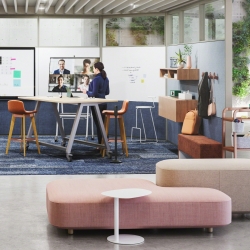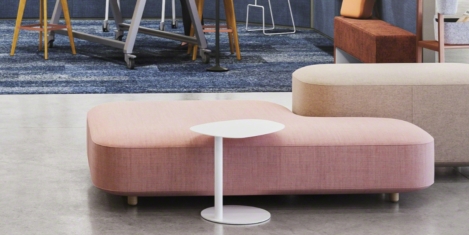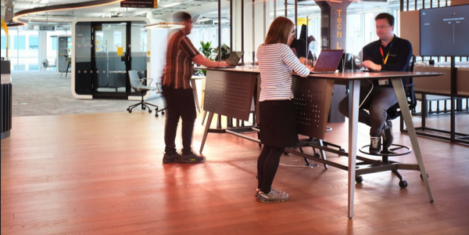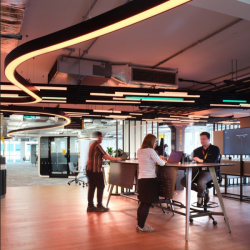March 31, 2022
Firms must do more to earn the commute of hybrid workers
 Steelcase has released a new global research report which reveals that outdated offices are no longer conducive to employees’ shifting needs for greater control, comfort, and privacy. The study found that if a workplace was made more in tune with shifting expectations, staff were more engaged, productive, connected to their organisation’s culture and less likely to leave. The Steelcase report, The New Era of Hybrid Work, surveyed nearly 5,000 workers in 11 countries. The findings reveal that whilst 87 percent of respondents now spend at least some of their time working from the office as the threat of the pandemic recedes, six in ten (58 percent) prefer working from home. One of the most appealing attributes of a home for two-thirds (65 percent) of UK employees is that they have a dedicated space for work. Whereas in the office, the majority (59 percent) have desks in open areas, with minimal privacy. More →
Steelcase has released a new global research report which reveals that outdated offices are no longer conducive to employees’ shifting needs for greater control, comfort, and privacy. The study found that if a workplace was made more in tune with shifting expectations, staff were more engaged, productive, connected to their organisation’s culture and less likely to leave. The Steelcase report, The New Era of Hybrid Work, surveyed nearly 5,000 workers in 11 countries. The findings reveal that whilst 87 percent of respondents now spend at least some of their time working from the office as the threat of the pandemic recedes, six in ten (58 percent) prefer working from home. One of the most appealing attributes of a home for two-thirds (65 percent) of UK employees is that they have a dedicated space for work. Whereas in the office, the majority (59 percent) have desks in open areas, with minimal privacy. More →






 The first Omnirama event on the 23rd of March launched the series exploring different factors challenging the world of work in a time of prevailing uncertainty. Underlying Ominirama’s raison d’etre is that recent events have turned the status quo on its head with some major structural and systemic changes taking place. Nobody seems to have any clear idea of how to deal with this enormous transformation in the ways we work All the playbooks and all the guidance that we have all relied upon for so many years have now gone out the window.
The first Omnirama event on the 23rd of March launched the series exploring different factors challenging the world of work in a time of prevailing uncertainty. Underlying Ominirama’s raison d’etre is that recent events have turned the status quo on its head with some major structural and systemic changes taking place. Nobody seems to have any clear idea of how to deal with this enormous transformation in the ways we work All the playbooks and all the guidance that we have all relied upon for so many years have now gone out the window. 




 Even as we begin to glimpse the light at the end of the tunnel of the pandemic, evidence suggests that many workers want to carry over the working flexibility that the pandemic afforded into the post-pandemic world and a new future of work. Namely, employees are wanting to adopt a ‘mixed’ working style – spending time both working in the workplace,
Even as we begin to glimpse the light at the end of the tunnel of the pandemic, evidence suggests that many workers want to carry over the working flexibility that the pandemic afforded into the post-pandemic world and a new future of work. Namely, employees are wanting to adopt a ‘mixed’ working style – spending time both working in the workplace, 





















March 28, 2022
Working from home means getting your priorities right
by Mark Eltringham • Comment, Flexible working, Wellbeing, Workplace design